A rainwater system designed with WISY products requires minimal maintenance and never needs replacing. Never clean a filter basket or a tank again. Ever.
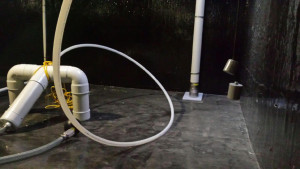 A 45,000 gallon, cement vault, rainwater collection system will supply a new Seattle residence with potable water. Rainwater is collected from the roof and conveyed to the cistern through two Wisy calming inlets.
A 45,000 gallon, cement vault, rainwater collection system will supply a new Seattle residence with potable water. Rainwater is collected from the roof and conveyed to the cistern through two Wisy calming inlets.
While filtration removes most of the sediment and bacteria before rainwater enters the tank, a small amount will settle on the bottom. This biofilm layer is good for the tank, which may remove additional bacteria and metals from the water. The Wisy smoothing inlet calms rainwater as it enters the storage tank, to aid in the prevention of agitation of sediment at the rainwater inlet. The smoothing inlet also helps aerate collected rainwater by directing the water upward and outward, avoiding disruption of the biofilm layer and also maintaining water quality in the tank.
A Wisy floating suction was used on the suction side of the solar powered pump (above) to further screening prior to pressurizing and filtration.
The floating filter should never clog, since the harvested rainwater is filtered before entering the tank. The filter will take water from just below the surface. Water at this depth is of the highest quality in the tank, because any particulate entering the tank will either settle to the bottom, or float on the surface.

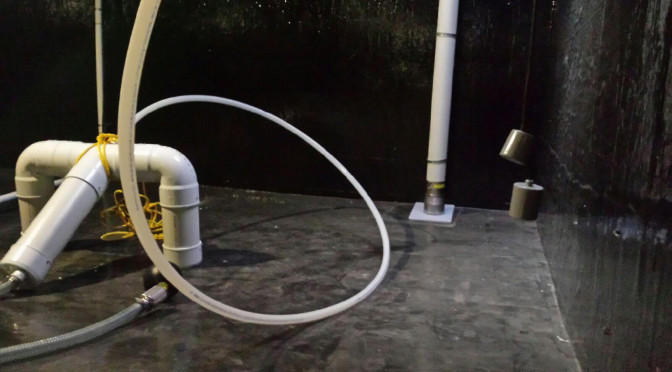
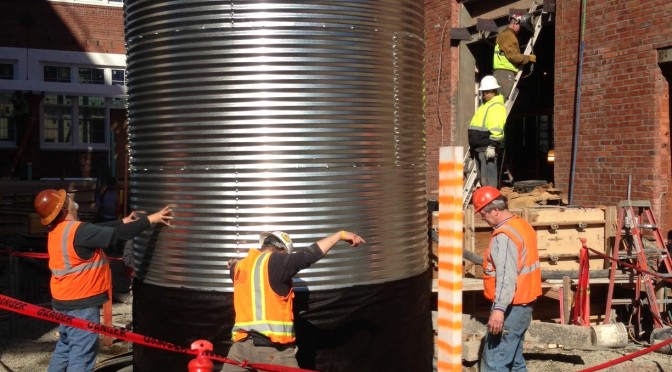
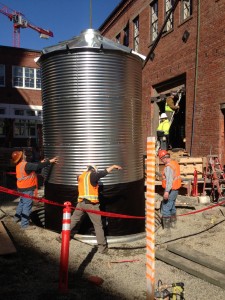 With 15 years of experience in the rainwater collection industry, RainBank has assembled a photo gallery of some of the steel tank installations we’ve completed .
With 15 years of experience in the rainwater collection industry, RainBank has assembled a photo gallery of some of the steel tank installations we’ve completed .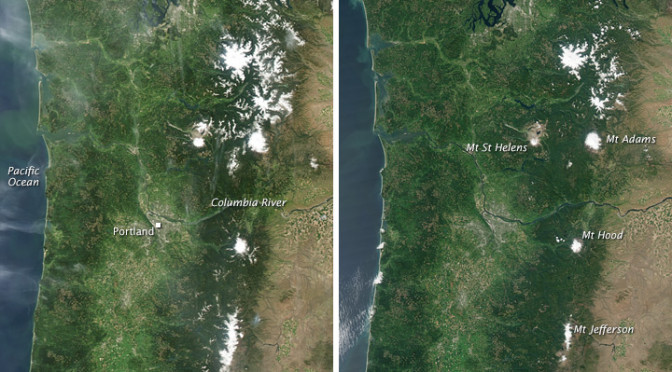
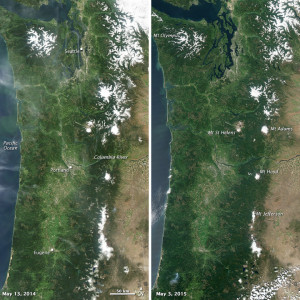 Forecasts indicate that the El Nino weather pattern is expected to continue bringing wetter, warmer forecasts for the winter, and continued dryer weather for next summer for the west coast. It is expected that we will see the same weather this next year as we did this year. Less snowpack in the Cascades will mean once again a limited amount of water for municipal water supplies. A warmer and wetter winter will fill reservoirs, but Seattle’s experience this year showed that without that snowpack to replenish stored levels, supplies fall short as summer stretches on. Many small water districts in the Pacific Northwest found themselves running extremely low, while Seattle Public Utilities is continuing to ask its customers to scale back usage.
Forecasts indicate that the El Nino weather pattern is expected to continue bringing wetter, warmer forecasts for the winter, and continued dryer weather for next summer for the west coast. It is expected that we will see the same weather this next year as we did this year. Less snowpack in the Cascades will mean once again a limited amount of water for municipal water supplies. A warmer and wetter winter will fill reservoirs, but Seattle’s experience this year showed that without that snowpack to replenish stored levels, supplies fall short as summer stretches on. Many small water districts in the Pacific Northwest found themselves running extremely low, while Seattle Public Utilities is continuing to ask its customers to scale back usage.